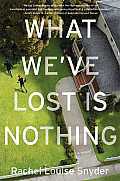Four New Ones
(for the record: I had three poems recently at Revolver, a great online mag out of the of everglorious Twin Cities)
 The Time Regulation Institute by Ahmet Hamdi Tanpinar
The Time Regulation Institute by Ahmet Hamdi Tanpinar
Hopefully you saw the great MRiker’s take on this a couple weeks back now in the Times, and basically I’d like here to stand beside him and applaud and point and say exactly, that. The Time Regulation Institute is a fantastic book regardless of provenance or how it critiques history and memory and cultural confrontations—it’s a marvelous tale, funny and engaging and weird and compelling as a tractor pull (that may sound like faint praise, but I happen to find tractor pulls deeply compelling). At its heart, what you’re caring about when you read this is Jayri Irdal, the sort of first-person narratory that, somehow, evades being grating and coy and too-cute-by-half and instead, in his huffing insistence and overdone-ness, he’s a great guide through the novel’s realm (here’s a good example of his voice, from at random in the book: “Cemal Bey and I were the only ones who had never spoken to Murat on the telephone, and neither had we met him at the apartment in Sisli. But to tell you the truth, this didn’t put me out in the least. Had I never met Cemal Bey, my time at the Spiritualist Society would have been a pure delight; nothing in this world could have taken me away from it. Who doesn’t relish that sweet shiver running down the spine when communing with the world beyond? But, sadly, I did meet Cemal Bey, and, sadly, I was putty in his hands.” It’s that sort of voice). Anyway: read this thing. Don’t do the thing of just buying it because it’s a smart, culturally-other book: read the thing because it’s funny and entertaining as any book you’re likely to soon come across.
 The Village Against the World by Dan Hancox
The Village Against the World by Dan Hancox
This book’s hard—hard not to love, hard to read straight, hard to find ways to talk about. Let’s get the objectives out first: there’s a village called Marialeda in Andalusia, Spain, which village is socialist. To some large degrees, it works: unemployment’s lower in Marinaleda than in the rest of Spain, and the world of the village that Hancox describes (really, really beautifully: the prose is insanely lush and vivid, which traits befit anywhere in Spain, certainly, but especially this region—it’s a strange, evocative, beautiful-if-difficult area, and Hancox does it great justice) seems just *better* than lots of other places, in or beyond Spain. This is, to me, the big place where the book gets hard, and the reason (I’ll posit) that the book is hard is that it demands a certain amount of belief on the part of the reader. Because, for instance, my kneejerk at socialist village is: come the fuck on. I simply don’t, or can’t, believe in the tenability of such a thing (and, in fairness, it’s not purely social: the village gets money from the government, for instance). I can’t imagine my scabby disbelief and dismissive grown-up-ness is rare: one reads The Village Against the World wanting to believe it’s possible (even if, say, it’d be impossible [or, to this limited mind, it feels impossible] to try such an endeavor in Fort Wayne, Indiana), this transformative way in which Marinaleda functions (well). And Hancox’s a hell of a great guide. What I’d say is this: it’s a book I kept coming back to, enjoying it very much, even if, on some level, I felt sort of consistently implicated for my own inability to let go of the sophisticated notion that such a thing’s too hard and therefore not worth it. It’s a gutsy story. I can’t imagine how one reads the thing without changing one’s mind, even just a little.
 Starting Over by Elizabeth Spencer
Starting Over by Elizabeth Spencer
What We’ve Lost is Nothing by Rachel Louise Snyder
Two fictions—the first a collection of stories, the second a debut novel—and both are the sort of enveloping, generous fictions one craves in winter (or, perhaps, this particular midwesterner craves in winter). Meaning: these are fictions which (in the best way) offer characters and an overwhelming sense of authenticity, of realness. I don’t know if I’ve even got a preference between these two (though I should note that I reviewed Snyder’s Fugitive Denim on its release at the end of ’07, and loved it, and the woman is overwhelmingly skilled at writing seductively readable sentences—I started What We’ve Lost is Nothing some night, post-dinner, thinking little of anything, and was 80 pages deep before really realizing I was)—they’re both compelling, direct, elegantly-written things. What We’ve Lost is set in Chicago; Starting Over‘s largely southern. I’d like to say this without sounding at all critical: these books are sort of classically approachable fiction: they’re not experimental or strange, and won’t suddenly make unreasonable demands or lead down dark, far-left paths. These books will give and give. I don’t know how much more to say about it. More than likely you need more fiction in your life; certainly no harm’s ever been done by reading deeply generous narrative. In other words: there’s a good chance you’re in short supply of the magic these books are both eminently full of.





